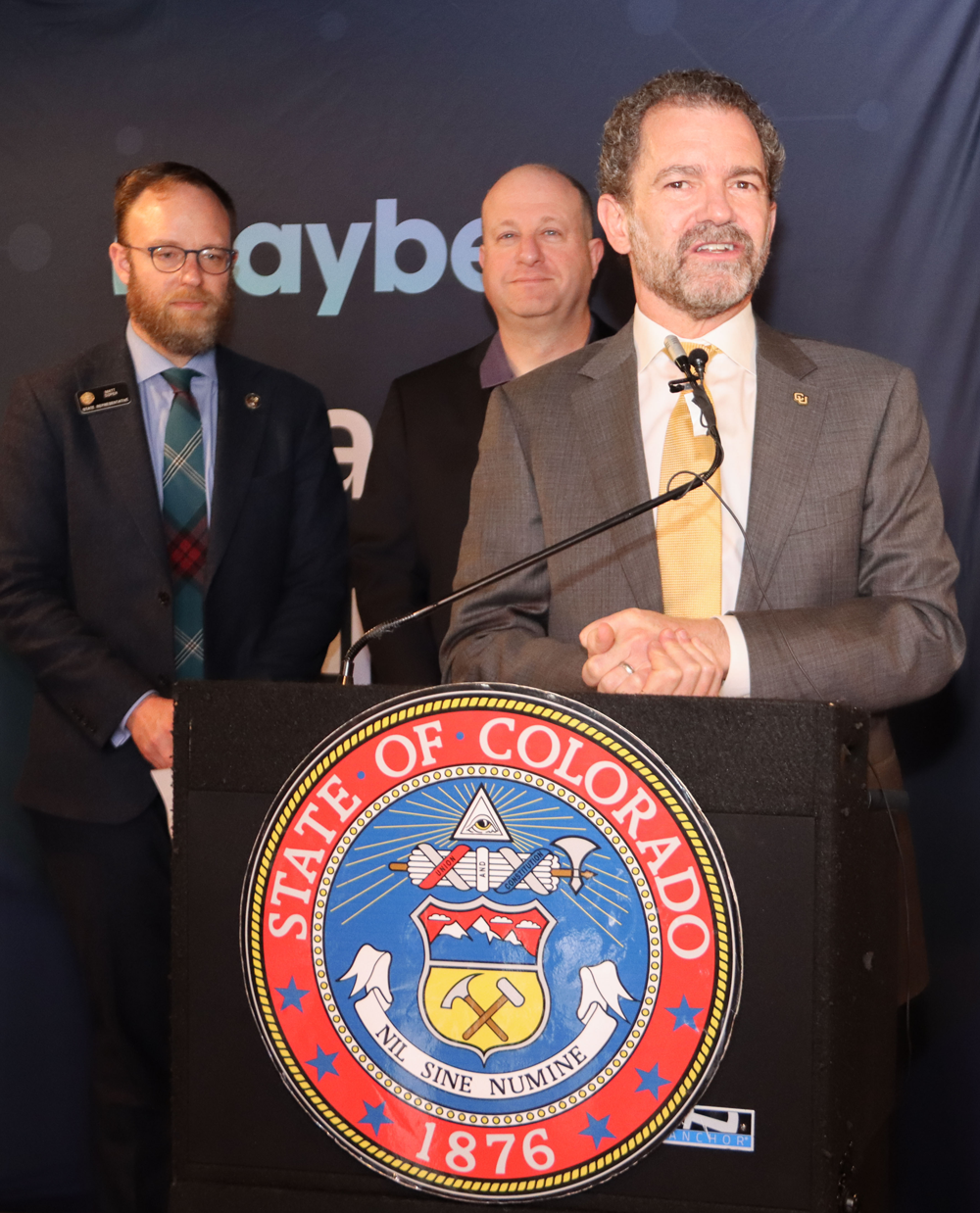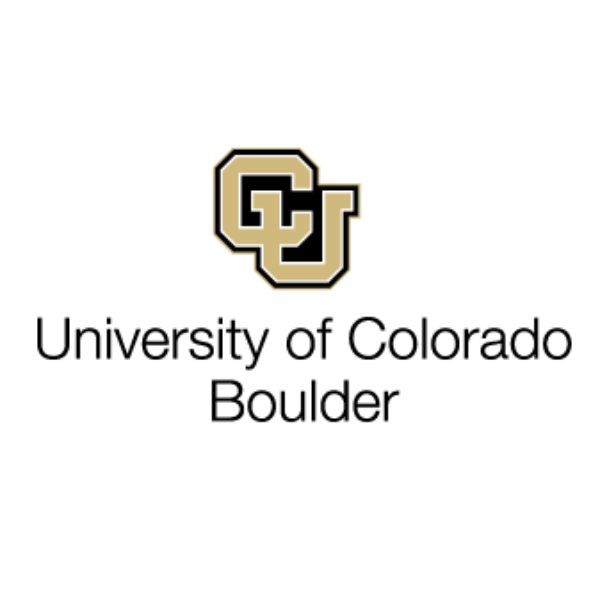Bipartisan Legislation Unveiled to Accelerate Colorado’s Quantum Ecosystem, Build on CU Boulder’s Legacy
Governor Jared Polis unveiled plans to invest $74 million in Colorado’s quantum ecosystem on Wednesday. The new refundable tax credit program aims to maximize the state’s competitiveness as a tech hub—including CU Boulder, already a global leader in quantum research and innovation—in order to win an additional $70 million in federal funding through a Phase 2 U.S. Economic Development Administration Tech Hub proposal. Colorado was designated this fall as a Quantum Tech Hub through the same program.
Alongside a bipartisan group of state representatives and other stakeholders, Polis shared more details about the Quantum Tax Credit bill to be introduced by the state legislature on February 16. The bill will strengthen Colorado’s economy by incentivizing quantum businesses to set up shop with greater access to capital through a quantum industry loan loss reserve, as well as investing $44 million in refundable state income tax credits to help fund the development of a shared quantum research facility for private sector and academic research collaboration, innovation and commercialization. $29 million will be available specifically to build a University Quantum Incubator led by CU Boulder and its fellow Colorado research universities, in partnership with industry partners and co-located with the Elevate Quantum Lab/Fab. Together, the state estimates these investments will create 10,000 good-paying jobs in the Colorado region.

CU System President Todd Saliman speaks at the press event
The new bill will boost collaboration between research institutions like CU Boulder and businesses advancing quantum research, building a bridge from new lab discoveries to the commercial sector. It will help build a cutting edge, translational laboratory facility where scientists work directly with industry partners, share space and equipment, and spur innovation. This investment will create a pipeline for innovation and job creation for Colorado.
“Thanks to our collaboration with the State and other partners, CU Boulder and our fellow research institutions will have unprecedented opportunities to translate cutting-edge quantum research from the lab into a positive impact for Colorado’s people and economy,” said Massimo Ruzzene, CU Boulder vice chancellor for research and innovation and dean of the institutes. “Together, we are translating quantum research into an economic and workforce engine.”
The bill was introduced following the designation last October of Colorado as a Regional Technology and Innovation Hub focused on advancing quantum technology, including quantum computing, sensing, networking and enabling hardware. Elevate Quantum, the entity that pursued and won the designation, is a consortium of more than 70 organizations including CU Boulder and other higher education institutions, state and local governments, federal labs and private companies. The new bipartisan legislation’s $74 million investment in the industry’s development will be triggered if Colorado is awarded the Phase 2 Quantum Tech Hub funding.
CU Boulder is one of the leading partners in Elevate Quantum, which is now competing with other states for up to $70 million in federal funding to continue developing a quantum technology ecosystem. As a global hub for quantum computing, Colorado is projected to generate more than $1 billion in economic impact statewide and create thousands of jobs.
As an established leader in the quantum sector, CU Boulder will continue blazing trails to make new research discoveries and to educate the next generation of quantum physicists and engineers. That momentum will help Colorado continue to lead the way in developing its quantum industry and toward its goal to become the Silicon Valley of quantum science and technology.
At the event, University of Colorado President Todd Saliman commented, “Together with our partners at Elevate Quantum, CU Boulder and the entire CU System are excited to build upon our outstanding legacy of excellence in quantum science and technology and develop one of the world’s leading quantum economies that benefits our state and the entire nation.”
Quantum science and technology: A CU Boulder legacy
Quantum technology—based on the physics of subatomic particles—is poised to change the world profoundly. Some of the world’s most challenging problems are too complicated for current computing and quantum tech is expected to speed up complex calculations to find solutions. Quantum discoveries will likely impact a wide variety of industries including health care, engineering, agriculture, aerospace, security and climate change.
Thanks to globally-recognized discoveries at CU Boulder, Colorado already has a long, illustrious history in quantum technology. Since the 1990s, CU Boulder researchers have won four Nobel Prizes for quantum-related insights. Much of that science has emerged from JILA (Joint Institute for Laboratory Astrophysics), a collaboration between CU Boulder and the National Institute of Standards and Technology.
The CUbit Quantum Initiative, an interdisciplinary triad of CU Boulder, the NIST Quantum Physics Division (as a core component of JILA) and Front Range companies, advances fundamental science and builds a strong foundation for novel quantum technologies and their rapid dissemination, application and commercialization.

